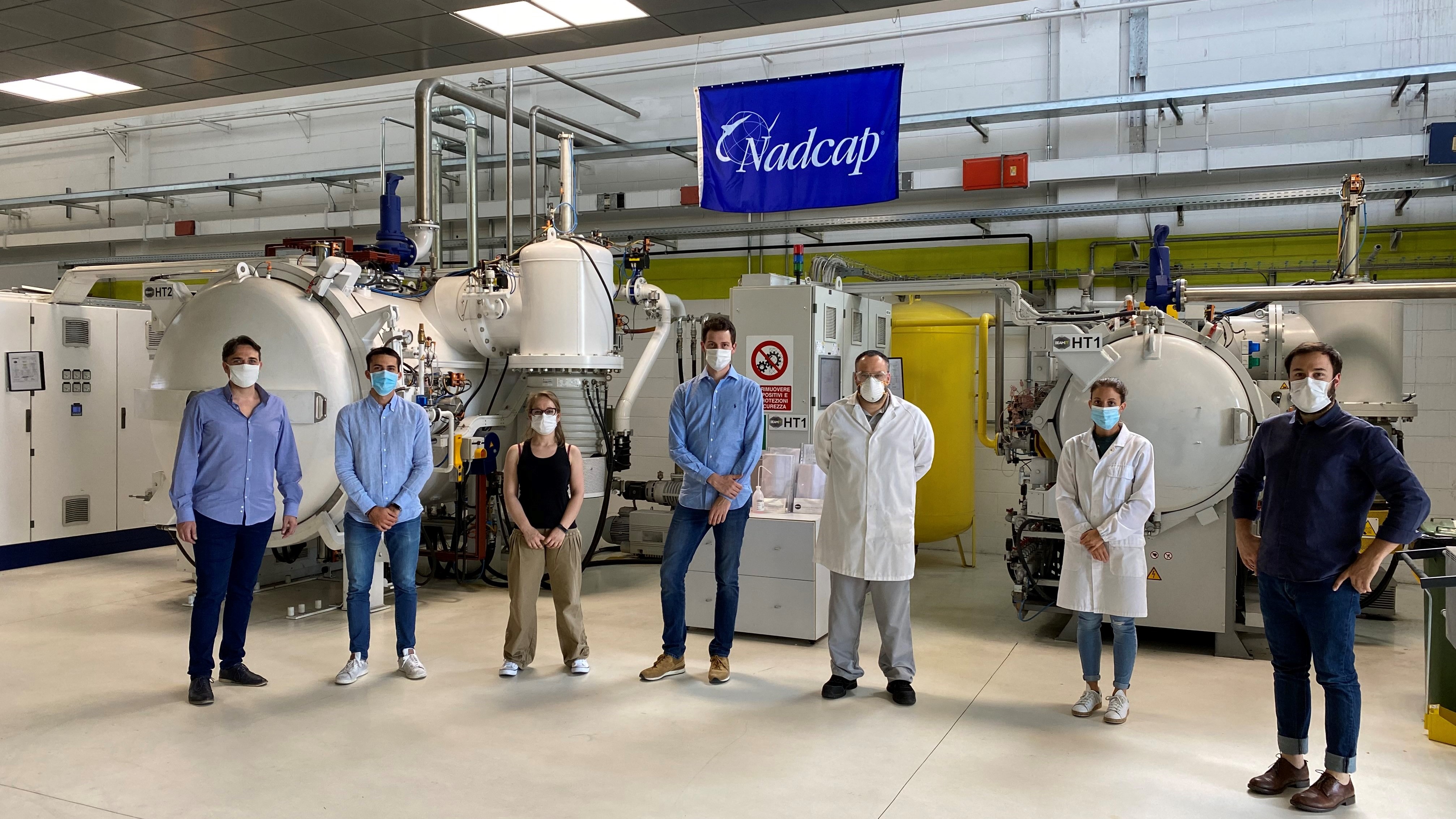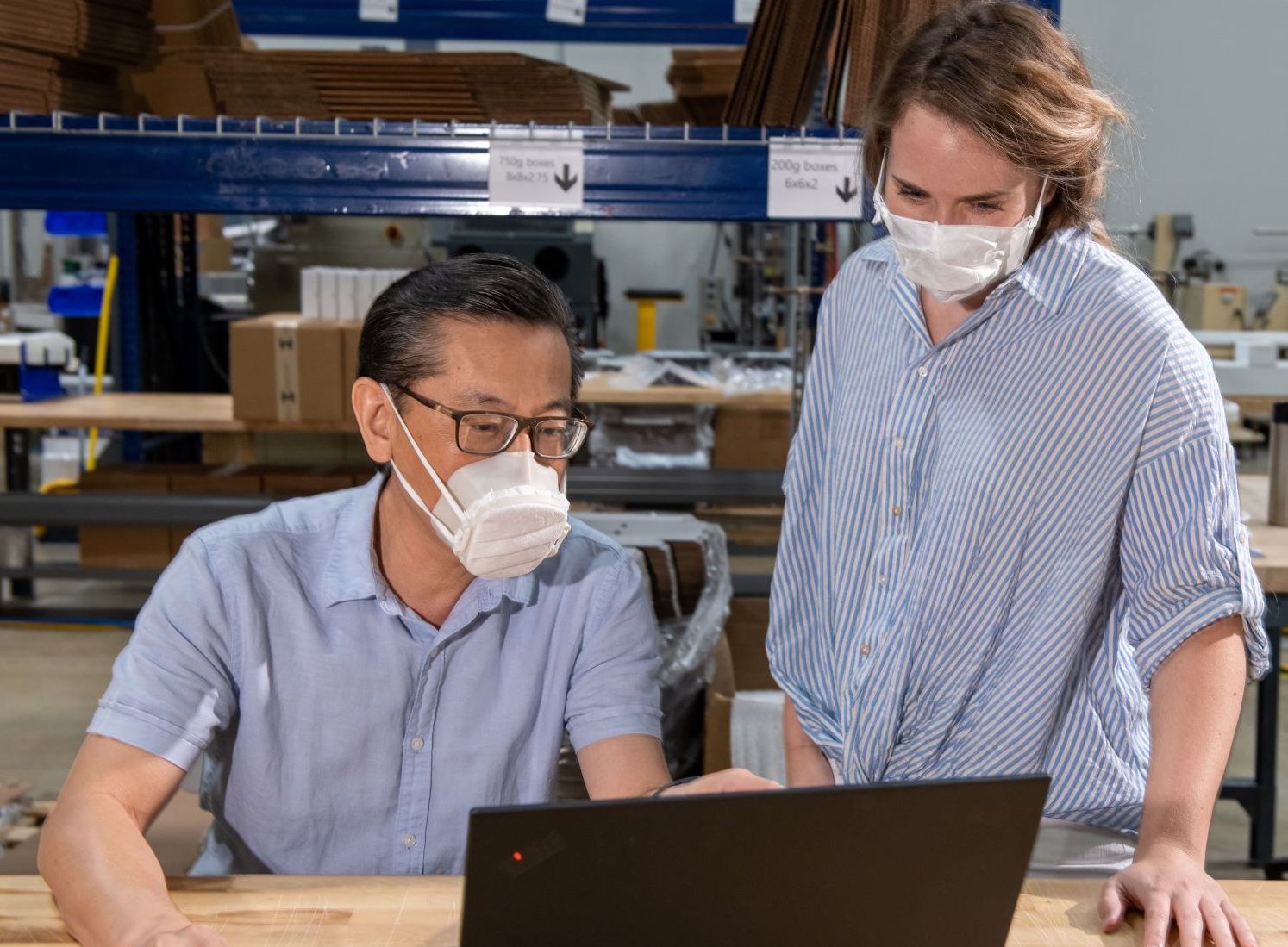In this edition of Sliced, the 3D Printing Industry news digest, we cover the latest business developments, partnerships, and acquisitions across our industry.
Today’s edition features updates on the 3D printing industries reaction to COVID-19, the latest software news, space launch agreements, industry partnerships and of course, the King of Belgium.
Read on for the most recent updates from BEAMIT, 3D Gloop!, Ricoh 3D, Iridium, Sicnova and more.
Business news from 3D Gloop!, 3D Printz, ExOne and BEAMIT
UK-based 3D printing company 3D Printz has become an approved supplier of 3D Gloop!, an adhesive compound designed specifically for the plastics used most commonly with 3D printers. Unlike other commercially-available adhesives such as cyanoacrylate glue, and various epoxies, 3D Gloop! is engineered to work with the particular polymers that make up the base plastic. As a result, the glue is capable of holding popular AM materials such as ABS, PLA, and PETG together. Users simply apply the formula to the mating surfaces, push them together, and the materials are glued securely within seconds. In addition, 3D Gloop! can also be applied to the 3D printer’s build platform just before printing begins, to ensure the extruded plastic doesn’t peel up or pull away from for the duration of the print.
“This is a fantastic, multi-functional product which we are delighted to be able to add to the growing range in our online shop,” said Peter Roberts, Director of 3D Printz. “The science behind the adhesive is very interesting. 3D Gloop! contains a mixture of solvents, esters, and various other compounds that react in a very specific way to the plastic it is intended to work with. These compounds loosen up the polymer chains in the plastic, allowing them to become more receptive to bonding.”
Leading industrial 3D printer OEM and service provider EOS has announced a partnership with the US government-partnered manufacturer Phillips Corporation Federal Division. The deal will see Phillips become an enhanced training partner at the US Army’s Rock Island Arsenal-Joint Manufacturing and Technology Center. Delivering on its advanced engineering and consulting capability, Phillips will work with EOS to empower the US Army, and enable it to achieve its long-term additive manufacturing objectives.
“Deciding to collaborate with a strategic partner to represent EOS in the Federal Government was one of the most important decisions I have ever made in our business, said Andy Snow, Senior Vice President at EOS North America. “The essential elements of a successful partnership consist of a good fit between the partners’ personalities, similar values, the ability to be a team player, compatible goals and clear expectations, and mutual trust. Phillips Federal represents all these values, and we at EOS are delighted to be teaming with them on the Rock Island P3 initiative, as well as many other strategic opportunities across the Government sector.”
Italian additive manufacturing service bureau BEAMIT meanwhile, has gained National Aerospace and Defense Contractors Accreditation Program (NADCAP) accreditation for its heating treating processes. The scope of the certification includes heat treatments of aluminium, titanium, nickel and cobalt alloys and stainless steels. In addition, approval includes examination at the company’s laboratories of various printing materials’ mechanical, metallography, micro indentation hardness, conductivity and pyrometric properties. The accreditation’s expiration date will be updated based on the results of periodic audit visits.

Additive movements on the stock exchange
Binder jet additive manufacturing company ExOne has been added to the Russell 2000 and 3000 Indexes following the FTSE’s 2020 annual refresh. FTSE Russell is a global index provider which creates and manages a wide range of indexes, data and analytic solutions, in order to meet client needs. The index company’s expertise and products are used extensively by institutional and retail investors globally, with approximately $15 trillion currently benchmarked using its indexes. ExOne on the other hand, is a leader in binder jet technology that produces 3D printers, as well as providing specialized 3D printing services, including the on-demand production of parts, and engineering and design consulting.
“We are optimistic about our long-term growth prospects and believe that the inclusion of ExOne in the Russell indexes is validation of the progress we are making with our binder jetting 3D printing technology, the strength of our backlog and the breadth of our updated machine portfolio. We look forward to the increased exposure to the investment community,” said John Hartner, CEO of ExOne.
German 3D printer manufacturer voxeljet has regained partial compliance with the New York Stock Exchange’s (NYSE) minimum average share price listing requirement. Section 802.01C of the NYSE’s Listed Company Manual dictates that a company’s common stock needs to trade at a minimum average closing price of $1.00 over a consecutive 30 trading-day period. Voxeljet has now met this requirement, but the company still has work to do in order to meet all the manual’s stipulations and remain listed on the exchange. Section 802.01B for instance requires companies to have an average global market capitalization of over $50 million for a consecutive 30 trading-day period, and its shareholders’ equity be greater than $50 million. The Company has until May 4, 2021 to regain compliance with the listing standard, or it could be removed from the NYSE.

Relativity Space agrees new launch contract and base
Additive aerospace company Relativity Space has made two big announcements at once. Firstly, the company has signed a launch contract with satellite communications company Iridium Communications Inc, to deploy six of Iridium’s ground spare satellites to Low Earth Orbit (LEO). The launches, utilizing Relativity’s Terran 1 3D printed launch vehicle, will take place on an as-needed basis, but Relativity confirmed they will not be launched any earlier than 2023.
Iridium’s second-generation constellation was completed in January 2019, and consists of 66 operational satellites and nine in-orbit spares. An additional six satellites were manufactured as ground spares and remain in storage. Should the need arise to launch a spare, Relativity’s Terran 1 offers a fast and cost-effective option for Iridium to quickly deploy a replacement to one of its six orbital planes.
“The upgraded Iridium satellite constellation is operating incredibly well, but it’s prudent to have a cost-effective launch option available for future spare delivery,” said Matt Descz, CEO of Iridium. “Relativity’s Terran 1 fits our launch needs to LEO well from both a price, responsiveness and capability perspective. We know based on our previous experience that there are great benefits to engaging with a provider early on during development of the launch vehicle, and evolving it around our particular needs.”
Relativity also announced a Right of Entry Agreement with the United States Air Force (UAF), 30th Space Wing, to develop rocket launch facilities at the UAF’s Vandenberg Air Force Base. These launch site facilities will support flights to the polar orbits needed for the Iridium satellite constellation. The aerospace company now has five launch contracts in place, and the potential launch site being developed at Vandenberg joins Relativity’s portfolio of major infrastructure partnerships. Relativity also has agreements in place to use facilities at Cape Canaveral Launch Complex-16, and test sites E4 and E2 at the NASA Stennis Space Center.

COVID-19-related updates from the 3D printing industry
As you’d expect, there have been plenty of pandemic-related stories in AM recently, as the industry reacts to the ongoing COVID-19 pandemic. India-based architecture firm Architecture Discipline for instance, has developed a printed wearable necklace which is designed to enforce social distancing measures. The sChoker electronic jewelry is crafted from carbon fibre, and its integrated thermal sensors are able to identify the infrared radiations emanating from the body temperature of passers by. When someone gets too close, the device will emit a visual or audio signal to let the wearer know, so that they can move away.
While the first prototype was developed using 3D printing, the company plans to produce a range in more typically fashionable materials such as velvet, plastic, gold and leather, to reflect the “new norm” of social distancing. “It is a symbol of unity,” said Akshat Bhatt, Principal Architect at Architecture Discipline. “The need was to make it easily available and simple, for it to uphold privacy and anonymity and allow people to be socially “normal” and not distant.”
Following the contributions made by Belgian software and 3D printing service provider Materialise to the fight against COVID-19, the company was treated to a visit by King Philippe of Belgium last month. The royal was given a tour of the Materialise’s 3D printing facilities at its Leuven headquarters, and later held a virtual roundtable discussion with leaders around the world at the company’s HQ. Materialise has developed a range of 3D printed solutions for prevention and treatment of COVID-19, such as hands-free door openers, connectors for oxygen masks and mask fitting devices.

UK-based 3D printing services company Ricoh 3D has ramped up its support of the British effort to fight the pandemic, by 3D printing 40,000 face shields a week for NHS workers. The Ricoh team managed to source and assemble the Personal Protective Equipment (PPE) within 24 hours, using its rapid prototyping capabilities. Moreover, now that the face shield has been approved for production, the company is in discussions with medical establishments and NHS Trusts across the UK regarding PPE supplies. It’s estimated that London alone will require 150,000 face guards per week, and Ricoh will utilise a 150-tonne injection moulding machine to make its contribution of 40,000 face guards every week.
“In our tests, staff commented on the comfort of Ricoh’s solution over existing equipment,” said Jason Pott, Lead Research Nurse for Emergency Medicine at The Royal London Hospital. “We tested across a range of male and female staff in the emergency department with different head shapes, hairstyles and head scarves, and everyone was happy with the fit. Innovations like this help staff in the NHS to remain safe while caring for those in need.”
Finally in pandemic news, Texas-based 3D printer provider Essentium has begun working with the Texas Division of Emergency Management, Military Department and other groups at a State level to supply the state’s PPE. Based on FDA emergency use authorization, the company has shifted capacity in its Texas operations to produce protective face mask kits. Producing the reusable masks’ frames with Essentium PA (thermoplastic nylon), allows for easy cleaning, and their single-use, replaceable filtration media is ASTM Level 2 certified. So far, Essentium has produced more than 60,000 3D printed face mask kits in Texas, with plans to produce more, as businesses begin to re-open, and demand increases.
“The State of Texas is creating a potential blueprint for sustainable access to PPE,” said Blake Teipel, CEO and Co-founder of Essentium. “We are proud to be part of this initiative, and I commend Governor Abbott’s visionary leadership in setting a path of clarity and water-tight coordination in its creation and ensuring it is subject to the highest level of oversight.”

PrintLab collaborates to expand its 3D printing curriculum
Finishing with the latest software updates, PrintLab, a global distributor and curriculum provider in 3D printing technology, has announced that its classroom learning platform is now available in Spanish. Following the successful launch of the English version of the software in 2018, a surge in customer demand has led to PrintLab’s Classroom being made available in Spanish, French, Dutch, Polish and Greek. As a result of a collaboration with Spanish additive manufacturing distributor Sicnova, Spanish teachers will now have access to a range of resources, with additional lessons being added to the platform every month.
The newly-added materials for teachers include downloadable presentations, student workbooks and lesson preparation and delivery information. In addition to lesson plans, the software places a large focus on teacher training or Continued Professional Development (CPD), with the inclusion of a comprehensive certification course. Fusion 360 and TinkerCAD functionality have been added to the software too, allowing teachers increased flexibility, and students the opportunity to progress from basic to more challenging design software. Additionally, as part of the deal, Sicnova is now an authorized reseller of PrintLab’s software, and will offer the translated curriculum alongside 3D technology, materials and training.
“Since launch, we have been astounded with the growing interest in PrintLab Classroom from every corner of the globe,” said Nick Mayor, Co-Founder of PrintLab. “Our goal has always been to prepare the next generation for their future careers by addressing the widening skills gap and I am very pleased to say that this goal is being realised in a number of regions. One of our key objectives is on finding partners that share our belief and vision and in Sicnova, we have found an inspired team with a belief in inspiring the next generation at its core.”
The nominations for the 2020 3D Printing Industry Awards are now open. Who do you think should make the shortlists for this year’s show? Have your say now.
Subscribe to the 3D Printing Industry newsletter for the latest news in additive manufacturing. You can also stay connected by following us on Twitter and liking us on Facebook.
Looking for a career in additive manufacturing? Visit 3D Printing Jobs for a selection of roles in the industry.
Featured image shows concept art of a Relativity Space rocket being launched at the company’s new site in Vandenberg Air Force Base. Image via Relativity Space.



